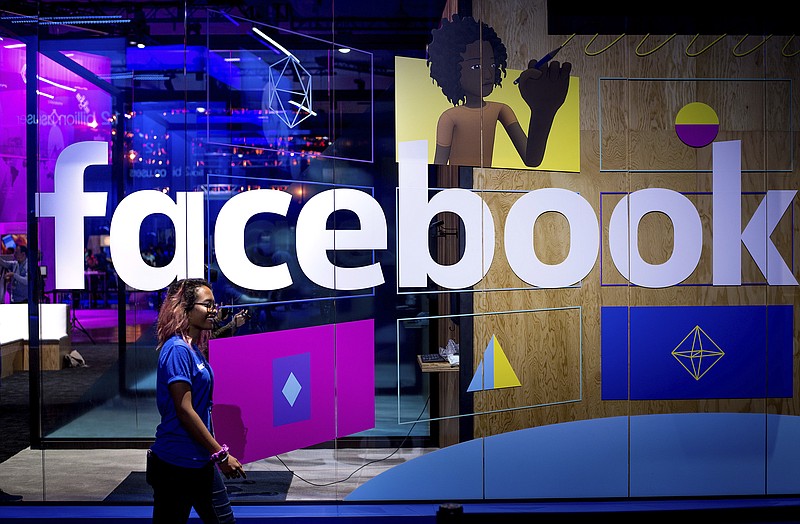Big surprise: Facebook helps exploit its users, knowingly and unknowingly.
But just how and how much are surprising.
On Friday, Facebook announced that the data firm Cambridge Analytica - the group that helped Russia meddle in our 2016 election and sway voters to favor Donald Trump - was suspended from the social network for using data collected "improperly" from Facebook users.
CNN reports that Facebook says it gave permission to University of Cambridge psychology professor Aleksandr Kogan to harvest information from users who downloaded his app - "thisisyourdigitallife."
The app offered a personality test. But Facebook users who downloaded the app also gave the professor permission to collect data on their location, their friends and content they had "liked." CNN reports that this was allowed under Facebook's rules at the time. But The New York Times has reported that Kogan provided that data to Cambridge Analytica, breaching Facebook's rules.
You'll recall that Cambridge Analytica came under scrutiny some time ago after reports that its data from more than 50 million Facebook users was harvested without their permission - thanks to Facebook's continual ask that we "like" posts, click further and interact. At the time, the Mercer-family backed company was headed by Steve Bannon, who went on be a top aide to President Trump. Robert Mercer is a wealthy Republican donor.
In what is best described as "mind hacking" (thank you, Dan Patterson of TechRepublic, for the phrase), Cambridge Analytica exploited a part of the Facebook platform that used surveys, clicks and "likes" to extract data. Cambridge Analytica then used machine-learning and big data analytics to build profiles about voters. And, Patterson told CBS, they also exploited the worst tendencies of social media users.
For instance, when users interact with a post or ad - rather than just liking it, Facebook gives that company a tremendous amount of information. That's how Cambridge Analytica built voter profiles to better target their ads and suggestions. In this particular case, it was to push millions of Facebook users to favor Trump.
The term for this harvesting of info and targeting is called "psychographics." And that is precisely why Cambridge Analytica was created: "Combining the precision of data analytics with the insights of behavioral psychology and the best of individually addressable advertising technology, you can run a truly end-to-end campaign," the company's website asserts.
Facebook wants us to believe it was a victim, too. Never mind that the company's business model is based on selling user data to app developers and advertisers.
In a statement Friday, Facebook said it learned it had been "lied to" about Cambridge Analytica and affiliate Kogan's activities in 2015, more than two years before suspending the firm from its platform, according to CBS. Of course, Facebook didn't alert users at the time.
And on Saturday, two days before London's Channel 4 News planned to air an undercover expose on Monday night in which the Cambridge Analytica chief executive was filmed speaking frankly to undercover reporters about its practices, Guardian reporter Carole Cadwalladr told CBS that Facebook and Cambridge Analytica threatened to sue The Guardian to prevent its publication of interviews with whistleblower Chris Wylie, a former employee for the firm. The Guardian story was published online Saturday.
"This [is a] continual pattern that we've seen with Facebook - trying to shut the story down, finally when it has no choice, acknowledge it," Cadwalladr said.
What about Russian links? There are some.
We know the Russians leveraged Facebook ads and social media to influence voters. But in 2013, Robert Mercer partnered with a British firm called SCL Group and its elections director Alexander Nix to test SCL's methodology in a Virginia election. Eventually the Mercers partnered with Nix to create Cambridge Analytica. Nix is still director of SCL Group, a British political and defense contractor, and the employees of his firm and Cambridge Analytica often overlap, according to The New York Times. In 2014 and 2015, those employees had a contract with executives from Lukoil, the Russian oil giant.
Why? Lukoil was interested in how data was used to target American voters, according to two former company insiders who said there were at least three meetings with Lukoil executives in London and Turkey. Those alleged contacts took place at the same time Cambridge Analytica was building a roster of Republican clients in the U.S. - and harvesting the Facebook profiles to develop tools to analyze American voters' behavior.
In Tennessee, many of us were invited by family and friends to click a Facebook ad and get a slide show of our digital lives. If you took part, you'll likely will never know - with proof - whether Cambridge Analytica or a similar outfit hijacked your data and allowed you to be buffeted with Mercer's - or worse, Russia's - fake news and ads.
But the moral to this story is that you should always assume that any social network has, at best, loopholes that allow you to be exploited. At worst, those networks have deliberate openings that help them benefit from your exploitation as well.
We have little information about what data is gathered about us, or how it is used. Few of us think about how our phones - beyond Siri and Alexa, et al. - are listening to us through these social networks to target us and sell us things. Or in this case, attitudes.
This isn't so much an exploitation of computer code or the loopholes of traditional hacking. This was hacking our minds and our behavior - for very cynical purposes.
